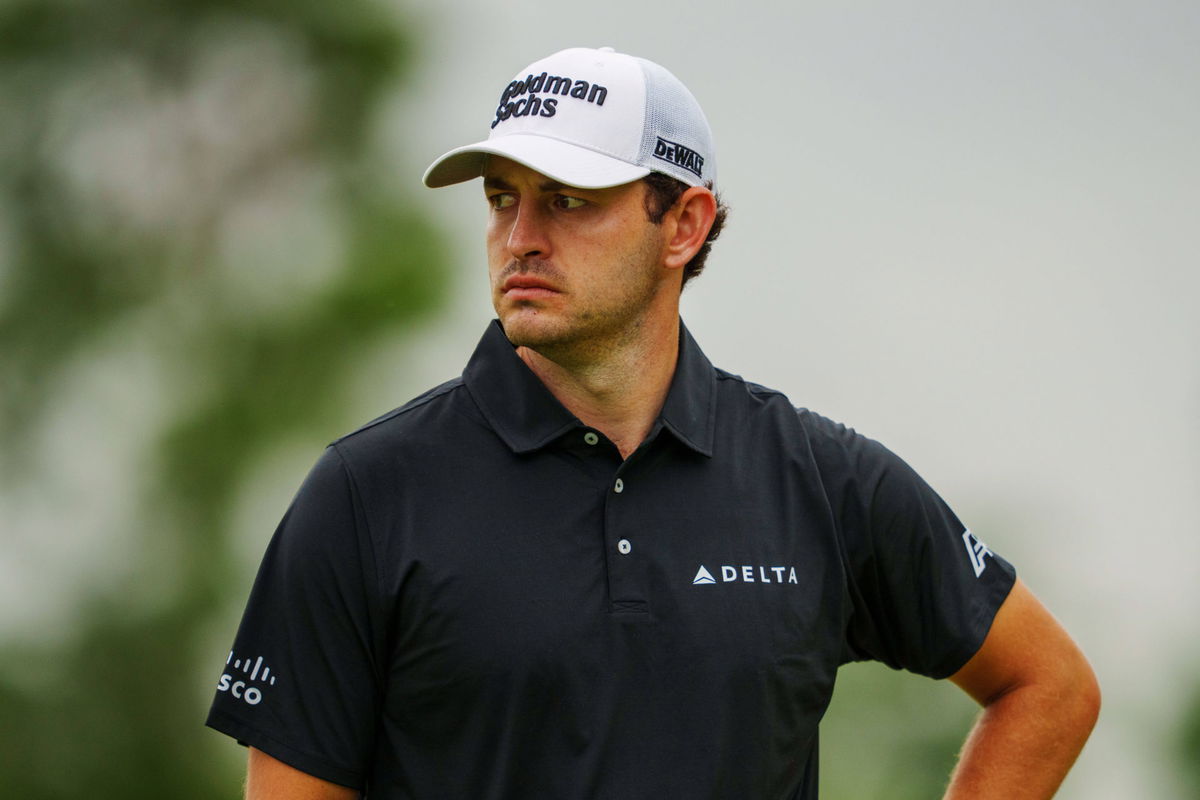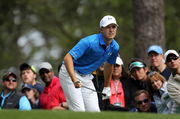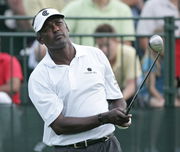
Imago
PGA, Golf Herren Zurich Classic of New Orleans – Second Round Apr 21, 2023 Avondale, Louisiana, USA Patrick Cantlay walks the third green during the second round of the Zurich Classic of New Orleans golf tournament. Avondale Louisiana USA, EDITORIAL USE ONLY PUBLICATIONxINxGERxSUIxAUTxONLY Copyright: xAndrewxWeversx 20230421_anw_pl2_011

Imago
PGA, Golf Herren Zurich Classic of New Orleans – Second Round Apr 21, 2023 Avondale, Louisiana, USA Patrick Cantlay walks the third green during the second round of the Zurich Classic of New Orleans golf tournament. Avondale Louisiana USA, EDITORIAL USE ONLY PUBLICATIONxINxGERxSUIxAUTxONLY Copyright: xAndrewxWeversx 20230421_anw_pl2_011
A video of a golfer teeing it up, and the comment is filled with yawning gifs and turtle images. Every golf fan knows who this can be about. After years of being called out for the pace of play, you’d think he’d redeem himself at the TOUR Championship. Well, you were wrong. Patrick Cantlay has once again frustrated multitudes of fans with his slow game.
Watch What’s Trending Now!
With the final round of the Championship underway at the East Lake Club, a video has been making the rounds on the internet. Cantlay, currently tied at 2nd place with Russell Henley and Scottie Scheffler, is seen taking a painful amount of time to get his swing off. “He’s taking his time again…Plenty of waggles,” says one of the commentators, sounding clearly annoyed. After nearly 30 seconds of fidgeting and rehearsing, Cantlay finally sends the ball flying.
🚨🐢⏱️ #WATCH — “He’s taking his time again… “Plenty of waggles.”
The commentators watch on as Patrick Cantlay took a while on the tee box. @TrackingCantlay pic.twitter.com/nsZybROfZ3
— NUCLR GOLF (@NUCLRGOLF) August 24, 2025
ADVERTISEMENT
And this time, to share the burden, the leading player, Tommy Fleetwood, has stolen some of the attention for the slow pace of play. The pairing of Fleetwood and Cantlay was given a warning. It came after their group reportedly fell two holes behind on the front nine of a playoff-deciding round, triggering the first step of the PGA Tour’s pace-of-play policy. If this is repeated, the group would officially be “on the clock,” with strict time limits for each shot. This is in contrast with the 2025 Scottish Open, when Chris Gotterup was put on the clock while leading, despite being only a hole behind with three to play. Yet at the TOUR Championship, the Fleetwood-Cantlay group was merely warned. This went unnoticed among the fans. “Remember when Gotterup was put on the clock while leading the Scottish Open despite not being more than a hole behind with just 3 to play? Cantlay is now a full 2 holes behind while still on the front 9,” a user commented on X.
But fans should know that Cantlay being specifically called out is nothing new. Just a few weeks ago at the BMW Championship, NBC rolled out a new on-screen graphic to clock how far behind “time par” players are. Cantlay was obviously one of the few to be singled out. “I am not in control of the broadcast or what kind of stuff they put on there, ” was the American’s response when asked about the same.
That kind of indifference hasn’t sat well with his peers, many of whom have borne the brunt of his sluggish pace. In the 2023 Masters, Brooks Koepka described Cantlay’s and Viktor Hovland‘s round as “brutally slow.” Matt Fitzpatrick, another player who has played alongside the American, was even more blunt, branding his play as “appalling” and a “disgrace.”
ADVERTISEMENT
With criticism mounting – especially at the TOUR Championship – questions are now being raised about Cantlay’s place in the upcoming Ryder Cup. While he hasn’t automatically qualified for the team, he still holds a good chance of earning a Captain’s pick from Captain Keegan Bradley. Even so, many fans are already voicing their disapproval, insisting, “he’s not needed” in the biennial showdown. One viewer went as far as declaring, “The US team is done.”
Top Stories
Reactions Pour In as Jordan Spieth’s Strange On-Course Moves Catch Fans Off Guard

Wishes Pour in for Golf Legend After He Underwent Open Heart Surgery for Concerning Health Issue

‘He’s Mean’: Vijay Singh Put Ex-Caddie Through Serious Hardships as PGA Tour Looper Opens Up

Paige Spiranac Feels ‘Deeply Misunderstood’ as She Accepts Sad Reality About Golf Career

YouTube Star Announces PGA Tour Return After Turning Down Big Invite

ADVERTISEMENT
But why does Patrick Cantlay play slow?
Patrick Cantlay has long defended his deliberate pace on the course, pointing to factors outside his control as well as the nature of professional golf. He often highlights delays caused by groups ahead, especially in the early rounds, and notes that challenging layouts like Augusta National naturally demand more time. Add to that unpredictable conditions such as gusting winds, and Cantlay argues it’s only logical for players to take extra care with each shot.
Presently, the wind is moving at a speed of 5-10 mph at the East Lake Golf Course.
Beyond conditions, Cantlay stresses the weight of playing at the highest level. Every stroke carries immense pressure, and he believes the time spent is necessary to make the right decisions. While he admits he’s “slower than average”, he points out that rounds overall haven’t gotten longer in decades and insists he’s never been penalized for his pace. For him, it comes down to one thing: doing whatever it takes to shoot the lowest score possible, regardless of outside criticism. “I don’t worry if I’m unfairly criticized.”
ADVERTISEMENT
ADVERTISEMENT
ADVERTISEMENT
ADVERTISEMENT

